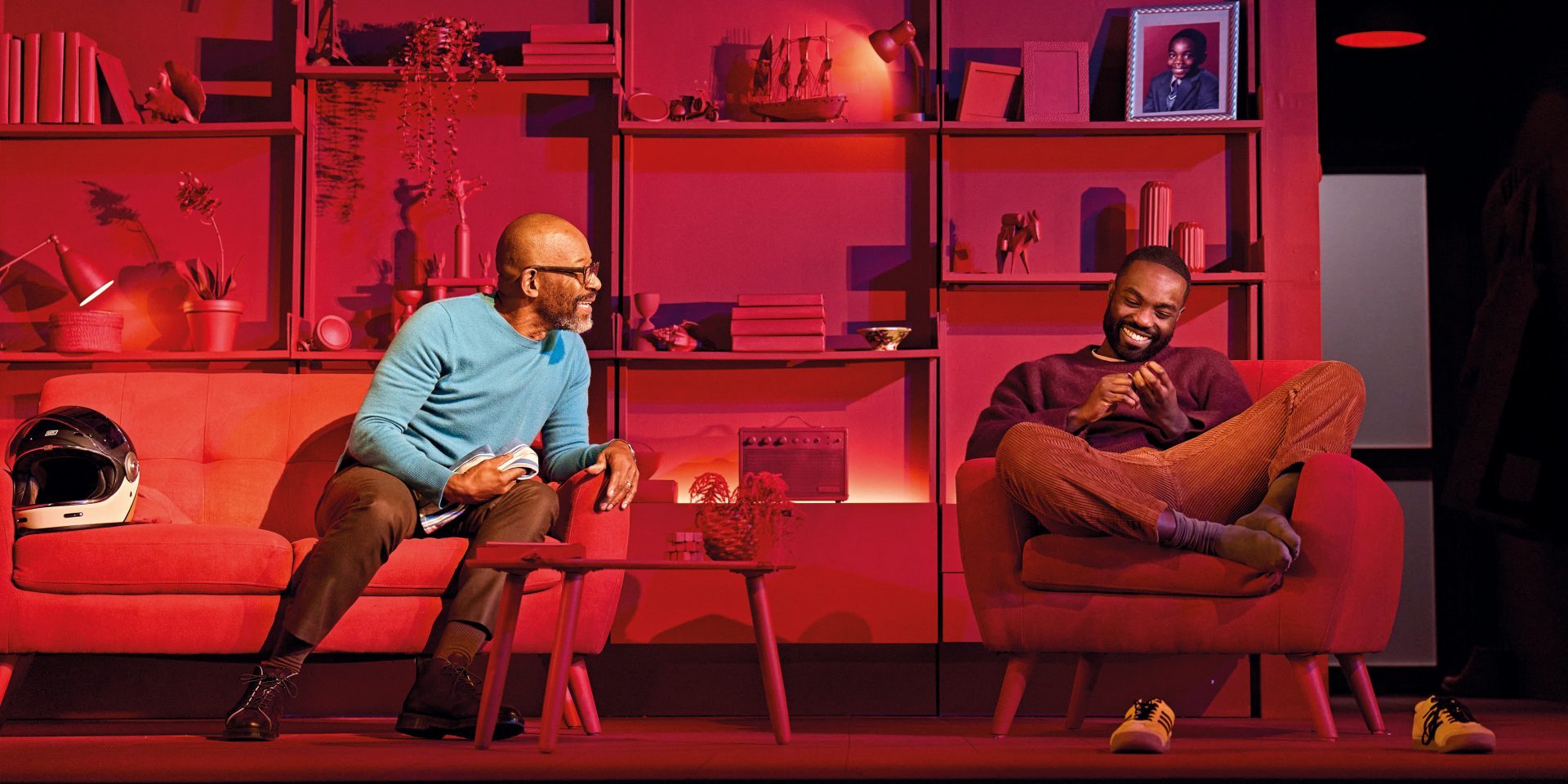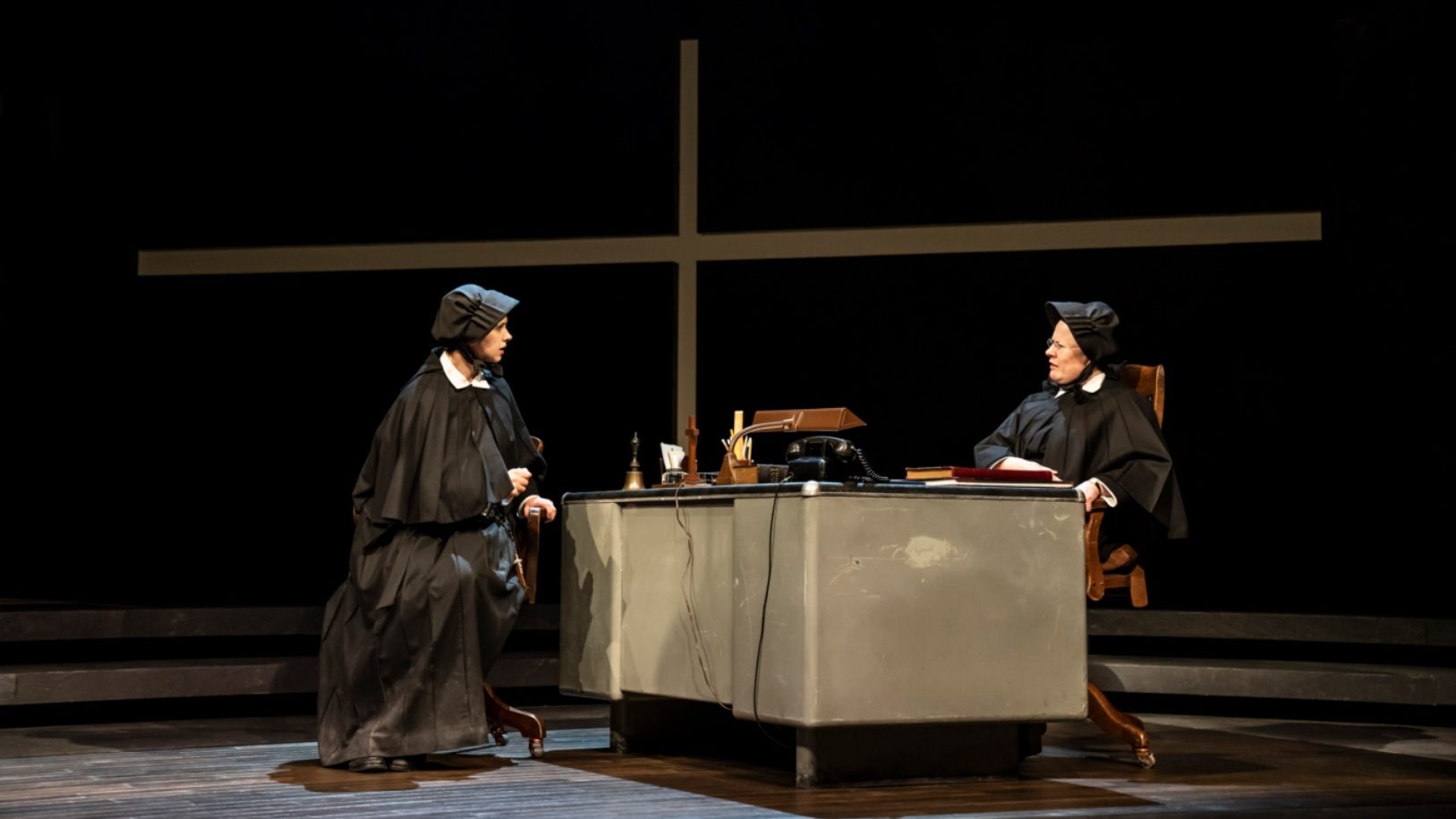A Number
Old Vic, London, until March 19
Carol Churchill’s A Number was written around the turn of the millennium when there was a spirited ethical and moral debate around the issue of
cloning. There was a headline-making sheep named Dolly who had been
successfully reproduced in a lab, and, concerningly, human embryos were being created and no one was quite sure at the time what was going to be
done with them.
This is a play very much of its time and it assumes a great deal of knowledge that has now largely ebbed away as other, more pressing issues have come to dominate public consciousness. It therefore takes a bit of unravelling, but it is set in the near future when Bernard 2 (the great Paapa Essiedu) has had the unsettling experience of seeing himself on the streets of London.
He learns from his father, Salter (Lennie James), that he signed up to a cloning experiment because he wanted to replace his first son, who
killed himself, but the scientists thought if they were going to make one son for him, they might as well surreptitiously make a few more Bernards as a job lot.
Lyndsey Turner’s production, played out on Es Devlin’s almost entirely peach-coloured set, is a strange old carry-on with some obvious flaws: Churchill’s prediction that we would all soon be seeing ourselves all over
the place has clearly not come to pass. The other is that, short of casting
identical twins as the Bernards we see on stage, accepting that the Bernards
are both Bernards is going to take a stretch of the imagination.
Essiedu and James do what they can with Churchill’s chatty, speculative and somewhat credulous script – in all honesty, this is an Islington dinner party conversation, downwind of a few bottles of Chianti, circa 2002, and not a play – but its one redeeming feature is a few laughs in its final moments.
This comes when Salter gets to meet another of his Bernards: on this occasion played by Phillip Olagoke, who turns out to be a happily married maths teacher with three children. Salter feels a need for him to say something profound about his predicament – to be privy to his innermost thoughts – but pretty much all he can think of to say is that he likes his life, he’s perfectly happy and he has a taste for blue socks.




